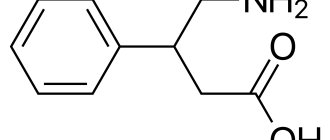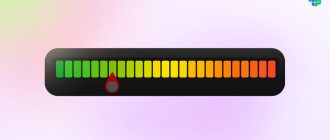Psychotherapy as an effective method for treating endogenous depression
Unlike, for example, reactive depression, which is a response to any traumatic event, it does not depend on external circumstances. The causes of this severe disorder lie within the person. The peculiarity of endogenous depression is that it can develop against the background of favorable life circumstances. Of course, unpleasant events also play a role in the occurrence of the disorder - the death or illness of loved ones, problems at work, and others. But stress is just a trigger for endogenous depression, not its cause.
Experts identify the following symptoms of endogenous depression:
- anxiety,
- mental retardation,
- general depression,
- prolonged deterioration in mood and others.
Endogenous depression: causes and symptoms
The main reason for this condition is an insufficient amount of hormones such as serotonin, dopamine and norepinephrine in the body. That is why the mood of a person suffering from a disorder does not depend on external events.
Some behavioral characteristics of the patient will help to recognize the disease. It is worth considering drastic measures if a person is often in a bad mood, and its quality depends on the time of year (spring and autumn are periods of exacerbation) and the time of day (in the evening the depressive state weakens somewhat). The following symptoms should alert you:
- slow perception of current events,
- inattention,
- inability to concentrate,
- self-deprecation,
- problems with appetite and sleep.
Consultation with a specialist will be necessary if a person complains of pain in muscles, joints, or in the heart area, but there are no organic disorders.
Symptoms
Signs of endogenous depression include:
- causeless or seasonal mood swings;
- experiences associated with mental trauma (they are noticeable at the initial stage of development of endogenous depression);
- narcissism and dependent behavior as very prominent personality traits;
- spontaneous, not caused by external causes, relapses;
- feeling of one's own guilt, self-blame;
- melancholy, apathy, anxiety;
- anhedonia (inability to experience pleasure);
- suicidal behavior (in this case, suicide intentions can be carefully hidden);
- obsessive thoughts of various contents;
- inconsistency of the patient’s reaction to the strength of the stimulus - thus, the disease may begin to worsen due to exposure to the most insignificant factors to which people are normally insensitive.
How to treat endogenous depression
The most effective weapon against endogenous depression is an integrated approach and the use of several techniques. Experts assign an important role in treatment to psychotherapy: as a result of the sessions, the patient will learn to control his condition and gain a sense of stability: in such a situation this is very important.
In some cases, the doctor will include antidepressants in the treatment regimen, the task of which is to restore brain biochemistry and stimulate the production of necessary substances. But, of course, the primary role in endogenous depression is given to psychotherapeutic procedures.
Reasons for development
There are many reasons for long-term depression. The literature describes a group of social causes, physiological and psychological. The focus is on the physiological origins of the disease:
- disruptions of cerebral blood flow;
- drug use, alcoholism;
- traumatic brain injuries;
- disruptions of the hormonal system;
- genetic determination.
The first psychological factor is childhood trauma. They are formed by the pedagogical ignorance of parents and a harsh attitude towards children. In second place among the causes are acute traumatic situations. These are separations, divorces, death of a relative, military actions, etc. The disease often develops against the background of impaired self-esteem and lack of self-esteem. At the same time, there are problems in the perception of one’s own “I”.
Psychological reasons also include unhealthy relationships. A codependent relationship or marriage is a situation where a person desires complete fusion with his partner. In such a situation, the patient begins to “experience himself” through the prism of his partner. The described dependence increases the risks of mental pathologies. The situation is especially dangerous when codependent relationships break up.
Social factors - the presence of emotional experiences that arose due to the impossibility of self-realization in the work or public sphere. The situation is aggravated by social pressure on any issue (for example, gender stereotypes, homophobia, etc.). Social problems initially increase the level of anxiety and worry. Then they gradually lead to mental illness.
In a social environment, the danger comes from cultivating success. A sensitive person watches successful people, but for some reason such achievements are impossible for him to realize. Women are more likely to pay attention to achievements in the area of physicality. But the image of a slim body is not achievable for everyone. The mechanism of social comparison of oneself with others is activated, and the risks of depression increase.
Where to treat endogenous depression
The Rehab Family mental health clinic is ready to offer support to every patient. She specializes in treating depression, including endogenous depression, without medication. It is possible to undergo treatment both on an outpatient basis and in a hospital setting.
All that is required of those who want to get rid of the disease is to call Rehab Family, and then completely trust the experienced specialists who, after conducting the appropriate examination and diagnosis, will choose the optimal treatment method. For some, cognitive or existential-humanistic psychotherapy may be a priority, for others - Gestalt or art therapy. In any case, the treatment will be successful and will help the patient regain the joy of life.
Endogenomorphic depression, anxiety depression
The term “endogenomorphic” depression was introduced by the German professor Klein in 1974 as a characteristic of a person’s condition with a suppressed, so-called “internal reward” system - when the patient is unable to experience feelings of pleasure and joy.
A separate type of depressive state in a person is the so-called anxious depression. Anxious depression differs primarily in that the leading manifestations of the clinical characteristics of depression (variable affect, mental arousal, as well as somatic tone), with anxiety dominant in the patient, acquire the character of excitement, as opposed to the state of inhibition inherent in typical depression.
Anxiety disorders, as a type of mental disorder, are quite common. According to statistics, this type of disease affects 15-20% of the total number of patients. The occurrence of such a form of depression in a person is completely unrelated to the absence or presence of provoking “pushing” external processes.
Forms of endogenomorphic depression. vital disorders are inherent (melancholy, apathy, changes in circadian rhythm, severe sleep and appetite disorders), the content of self-awareness also changes - fears for one’s own health appear, the patient is characterized by constant self-reproach.
The main pronounced symptoms of anxious depression are persistent mood disorder, asthenia, attacks of nausea, and without any noticeable connection with food intake. However, the main symptom is always the same, this is the presence, in aggravation of the patient’s depressed state, of feelings of persistent anxiety. Often a person’s feeling of constant anxiety is so strong that it is difficult to keep the patient in place, he is haunted by an obsessive thought about the inevitability of some terrible event, the sick person tries to escape, to take cover by any available means.
The large group of endogenomorphic depressions includes bipolar and some unipolar depressions. Professor Klein and many other specialists believed that for depression of an endogenomorphic nature, treatment is necessary, primarily with antidepressants, as well as electrotherapy. And, on the contrary, psychotherapy is not decisive. In the absence of a sufficiently correct diagnosis and effective treatment of depression and anxiety, according to the patterns of the course of endogenomorphic depression, the onset of manic-depressive psychosis and even its death may occur in a neglected patient.
Therefore, in the initial stage of anxious depression, endogenomorphic type, it is so important not to make a mistake in making the correct diagnosis. .
We also recommend reading the article about nymphomania.
The influence of insomnia and magnesium deficiency on the development of depression
Chronic insomnia is a fairly common problem: every 10th person suffers from it. Lack of sleep inevitably provokes fatigue, stress, and bad mood. Depression and insomnia are locked in a vicious circle that is difficult to break, but it is possible, and in these ways:
- do not drink tea and coffee;
- do not sleep more than 15 minutes during the day;
- keep the temperature in the bedroom 3-5 degrees lower than usual;
- have dinner early and do not overeat;
- reduce intellectual stress before bedtime;
- be physically active during the day;
- Go to bed strictly on schedule - at the same time.
Sleep hygiene and proper sleep patterns will help restore normal sleep. Sleeping pills should be avoided as they will cause addiction.
Magnesium is an element involved in the transmission of nerve impulses, so it helps the nervous system function normally. Its lack can lead to chronic fatigue, anxiety, irritability, decreased attention, etc. That is, a lack of magnesium can affect the development of depression.
Eating cocoa, peanuts, and buckwheat will help replenish this element (it is available in abundance here). Alcohol and coffee should be removed from the diet.
UZ "Mogilev City Emergency Hospital"
“Recognizing a problem is half the success in solving it”
Sigmund Freud
We often hear (observe in ourselves) complaints about depression and loss of strength. The covers of glossy magazines and periodicals are full of titles: “I’m depressed. What should I do?”, “How to overcome depression?” and so on. Meanwhile, depression is by no means a fashion statement, but a very serious emotional illness that affects many aspects of a person’s life.
So what is the difference between periodic mood swings caused by seasonal changes, everyday problems, work or family troubles, and a clinical illness that requires medical intervention?
WORLD STATISTICS
Depressive disorder in the modern world is widespread in all countries, sectors of society and cultures. It can occur in people of different genders, ages and status. At any given time, it affects 5% of the population (approximately 3% of men and 7-8% of women ). Approximately 12% of people will experience at least one episode of depression during their lifetime that reaches a level where medication is necessary.
The lifetime chance of developing this condition is approximately 20% for women and 10% for men . It affects 10% of the population over the age of 40 , of which two thirds are women. Among people over 65 years of age, depression is three times more common . 5% of children and adolescents aged 10 to 16 years are susceptible to depression and depressive conditions . The overall prevalence of depression (of all types) in adolescence ranges from 15 to 40%.
According to the WHO (World Health Organization), depression will take first place among all human diseases by 2021, ahead of cardiovascular disorders and oncology.
So, depression (from the Latin deprimo - “to press”, “to suppress”) is a mental disorder characterized by the “depressive triad”:
- decreased mood and loss of the ability to experience joy (anhedonia);
- thinking disorders (negative judgments, pessimistic view of what is happening, etc.);
- motor retardation.
With depression, self-esteem is reduced, and there is a loss of interest in life and usual activities. In some cases, a person suffering from it may begin to abuse alcohol or other psychotropic substances.
TYPES OF DEPRESSION
- somatic (somatogenic): manifest themselves as a consequence of various (somatic) diseases, such as diabetes mellitus; cancer, etc.)
- endogenous (mental or somatic causes are absent or not obvious);
- seasonal (more often observed in autumn-spring);
- Depression as a side effect of medications:
a) neuroleptic depression (due to taking antipsychotics);
b) depression due to abuse of sedatives, hypnotics, alcohol, cocaine and other psychostimulants;
- reactive depression (due to exposure to traumatic stress; for example, loss of a loved one, divorce, emergency situations, etc.)
MAIN SYMPTOMS OF DEPRESSION
ATTENTION!
These are exactly the symptoms when it is important to prevent further negative changes! They indicate that a depressive disorder has already formed and it is necessary to consult a specialist (psychotherapist) for help!
In addition to the main ones, there are a number of other, additional symptoms:
- Decreased self-esteem, irrational feelings of guilt and loss of self-confidence. A person, regardless of his success in life, constantly feels bad, incapable, worthless.
- A person’s appearance changes - pale face, dilated pupils, dull eyes, dry skin, drooping shoulders, predominance of gray and black clothes, lack of jewelry and cosmetics, sloppiness and indifference to one’s appearance
- Slow, difficult thinking, impaired ability to think and concentrate, decreased intellectual productivity. A person’s attention is scattered, it is difficult for him to concentrate on something, follow the train of thought, or grasp the meaning of the conversation. There are few thoughts in the head, they are usually of unpleasant content and annoyingly revolve around some minor trifles.
- Persistent pessimism and so-called negative thinking - “everything around is bad”, “nothing can be changed”, “I am a complete nonentity”, etc. Pessimism extends both to events of the past and to the future. Such a person sees everything in a dark, gloomy form. Often he sees no prospects for his future at all.
- Basic instincts weaken - sexual feelings and desires, appetite, pleasure from eating and, as a result, loss of body weight. Characterized by sleep disorders in the form of early awakenings and inability to fall asleep. The person stops dreaming.
- A person’s perception of the world around him changes - the world loses its colorfulness and expressiveness, everything becomes as if unreal, everything is seen in dim light. A person seems to himself to be changed, not the same as he was before, cannot share their joys with his family, may complain about the loss of love for loved ones, time drags on slowly or even stops.
- Experiences a number of unpleasant sensations from the internal organs, as if this is a manifestation of some kind of physical illness.
- The most dangerous symptom, both for the person himself and for his family, is thoughts of not wanting to live. With the appearance of these thoughts, there is a very great danger that a person may make a suicide attempt.
ATTENTION!
If at least (3 - 4 or more) of the above symptoms persist in a person for 2 - 3 weeks, there is every reason to think about depression, which needs to be treated!
CONTACTING A SPECIALIST IS MANDATORY!
Features of mood disorders in men
Usually, when talking about depression, they mean the fair sex, although this problem is not alien to men. It's all about stereotypes that say they should be strong, not show weakness, and demonstrate toughness.
At the same time, in men, depression can be even more difficult - missing the moment when they can still get rid of the problem, some of them commit suicide. The numbers are scary: out of 100 people who get sick, 80 commit suicide. Therefore, modern psychiatry insists on informing the stronger half of humanity that depression can also affect them. You can’t joke about this, but you should definitely contact specialists.
Treatment
Good treatment begins with a thorough diagnosis. The first stage is a consultation with a psychotherapist or psychiatrist. The doctor pays attention not only to what the person says, but also to his gestures, facial expressions, and movements. The patient undergoes a series of psychological tests. This is necessary to assess the functionality of the cognitive sphere. Further laboratory tests may be carried out.
Treatment of depression is a combination of medication and psychotherapy. The process is long and difficult. It is strictly forbidden to stop prescribed medications on your own. In this case, the risk of suicide increases, and symptoms can worsen. In acute conditions, hospitalization will be required to monitor the patient and his health.
Medication methods
The medication method involves careful planning of a specific dosage of drugs for a specific person. Doctors make a prescription from a combination of necessary medications. In the treatment of deep, protracted depression, one cannot do without the following groups of drugs:
- antidepressants - normalize mood, smooth out the feeling of helplessness and gloominess of the world;
- tranquilizers - relieve anxiety, improve sleep, have a calming effect;
- nootropic drugs improve blood flow and correct cognitive problems;
- sometimes antipsychotics are prescribed, especially in the presence of psychotic manifestations;
- vitamins for general strengthening of the condition;
- mood stabilizers - eliminate sudden mood swings.
Tricyclic antidepressants and selective serotonin reuptake inhibitors are aimed at normalizing neurotransmitters in the body. Pharmacological agents are necessary to restore hormonal balance.
The doctor develops a drug treatment plan, taking into account the patient’s current and past condition, the parameters of his body, and the risks of side effects. The therapeutic effect of the drugs is not achieved immediately - it will take from 3 to 6 months. Drug therapy is a relief method that relieves painful symptoms. Then it is important to attend psychotherapy.
Psychotherapy
Lack of complexity in the treatment of depression will not give results and recovery. If a patient undergoes only pharmacological treatment, he does not develop mechanisms for coping with his own emotional state. He does not realize and does not understand the psychological reasons for the onset of the disease.
Only drug treatment leads to a rapid relapse. Therefore, psychotherapy is an important component of treatment. Psychotherapists and clinical psychologists use the following methods:
- psychodynamic therapy helps to understand and eliminate intrapersonal conflicts;
- family therapy - joint consultations between the patient and his family members, the psychotherapist helps to correct pathological patterns of behavior among relatives;
- The cognitive-behavioral approach helps to return a person to real life, to understand the situation and the need for further treatment;
- Cognitive behavioral therapy is a proven method aimed at transforming patterns associated with depressive disorder;
- mindfulness and mindfulness practices correct cognitive problems, develop observation skills, healthy reflection, and skills to monitor one’s own feelings and thoughts.
The patient is required to comply with the recommendations of the attending physician and clinical psychologist. Psychotherapy helps reduce the risk of relapse and achieve recovery.
Self-medication
Independent attempts to overcome mental pathologies often end in failure. Patients with depression perceive failures harshly. Because of this, the situation worsens and the symptoms worsen.
It is unacceptable to take medications on your own, based on articles on the Internet or advice from friends. Self-medication is only relevant in combination with drug therapy prescribed by a doctor and psychotherapy.
At the beginning of treatment, the patient is unable to find the strength to take care of his own well-being. But after several months of qualified treatment, a person already finds the strength to take an active position. Self-help includes:
- taking care of proper nutrition, quality sleep;
- taking medications prescribed by your doctor on time in the described dosages;
- engaging in non-physically strenuous sports - yoga, walking, swimming;
- taking care of personal hygiene.
It wouldn't hurt to educate yourself on the topic of what depression is. Reading scientific, proven sources about the disease helps. It is also recommended to try to focus on positive things. One of the simple psychotherapeutic self-help techniques: create a list of actions, people and locations that cause at least a little inner well-being. You should try to do things that have a positive effect on your well-being and exclude unfavorable people from your social circle.
It is important to try to be active: look for a new hobby, join a support group for people with depression, monitor your own feelings, volunteer.











